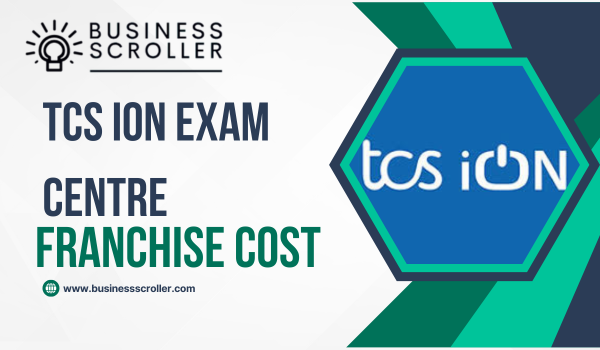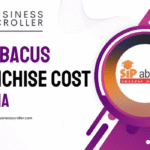If you’re exploring a low-risk, recurring-revenue opportunity in the education / assessment space, becoming a TCS iON Authorised Exam Centre (AEC) can make a lot of sense. TCS iON — Tata Consultancy Services’ dedicated cloud-based assessment and learning arm — runs one of India’s largest networks of digital test centres, conducting university/board exams, government & bank recruitment tests, company assessments and more. This post — written from the point of view of an Indian franchise and education-centre expert — explains the franchise/partner model, realistic investment ranges, how returns are earned, who’s eligible, and the exact steps to apply (with official contact details).
Why partner with TCS iON? — the elevator pitch
TCS iON offers a secure, end-to-end digital assessment platform used by universities, boards, PSUs and test-owners across India. They already have thousands of authorised exam centres and support remote + in-centre assessments, proctoring and exam lifecycle management. Becoming an authorised centre plugs you into centrally-booked exam volumes without having to build your own platform or sales pipeline. That continuity of demand is the core attraction.
Franchise / Partner model — what you actually do

TCS iON does not sell traditional “franchises” like a restaurant brand. Instead, institutions and entrepreneurs partner with TCS iON to become Authorised Exam Centres (AECs) or assessment partners. The typical arrangement:
- You provide the physical infrastructure (space, computers, secure network, power backup) and local operations — invigilation, candidate verification, queue management.
- TCS iON provides the assessment platform, secure software (AEC modules), question-paper distribution systems, proctoring options (human + machine), and central bookings/clients.
- Centres are audited, approved and periodically monitored; they must meet technical, security and process standards set by iON.
This model means your revenue comes from running booked exam slots, seat rentals for university/board exams, ISO/assessment projects, and potentially ancillary services (coaching tie-ups, printing, ID verification). You act as a local delivery partner for a national platform.
Investment / setup cost — realistic ranges
Public aggregator estimates and market listings put the initial project cost for setting up a fully compliant TCS iON exam centre in India roughly in the ₹15 lakh – ₹40 lakh band (varies by city, seat capacity, fit-out and redundancy requirements). This includes:
- Computer systems (quantity depends on number of seats).
- AEC primary server / software setup & licensed modules (local installation/secure instance).
- Networking, Internet leased line / broadband with redundancy, firewall & VPN.
- UPS / power backup, biometric/iLEON devices (where required), CCTV, seating, furniture and signage.
- Security hardening, audit readiness and initial working capital for staff.
Important: quoted ranges online are indicative — TCS iON evaluates capacity and requirements during the site onboarding process and will give the definitive list of hardware & software needs for your centre.
Technical & minimum infrastructure requirements
To be audit-ready you typically need:
- A sufficient number of dedicated computers meeting minimum specs, plus one AEC server (local/primary instance) for secure exam delivery.
- Stable Internet (broadband/leased line) and a VPN router; recommended RAM, browser and OS specs per TCS documentation.
- Power backup (UPS/generator) and CCTV for audit logs.
- Biometric / identity capture devices and secure candidate verification workflow, if the exam owner requires it.
These technical requirements and AEC operational details are documented in TCS iON’s help/implementation pages.
Revenue model & expected ROI
Earnings depend on seat capacity, utilisation and the types of exams you host:
- Per-seat / per-exam fees: Test owners pay TCS iON for delivery and the partner centre is paid per seat or a pre-agreed fee per exam (models vary by contract).
- Mixed revenue: Centres that combine regular university/board bookings with scheduled recruitment drives, certification exams and coaching-partner tie-ups enjoy better utilisation and steadier monthly receipts.
- Utilisation is king: A 50-seat centre that runs 2–3 shifts for proctored exams in a month will recover fixed costs much faster than a centre that sits idle between large drives.
Because contracts vary, give realistic estimates (conservative): if your centre reaches 40–60% monthly utilisation with modest per-seat rates, payback can range from 24–60 months. ROI depends heavily on local real-estate & staff costs, so run sensitivity scenarios before committing. (Use the TCS iON partner form to get specific commercial models for your city.)
Eligibility & what TCS iON looks for
Typical eligibility checkpoints include:
- Sufficient premises & seating (size & layout suitable for controlled exams).
- IT infrastructure & bandwidth that meets iON’s technical checklist.
- Security & power backup — CCTV, UPS, controlled entry and reliable power.
- Operational capability — trained invigilators, an IT resource, local point of contact for audits.
- Willingness to undergo audits and comply with strict exam security SOPs.
You must identify a senior contact who will coordinate with iON and fill the partner registration form; iON’s onboarding teams conduct a site audit and technical validation before approval.
Step-by-step: how to apply (practical checklist)
- Self-assessment: Check premises, compute seat capacity, and estimate hardware/network spend.
- Fill TCS iON Test Centre / Partner form on the official site — this initiates contact with iON’s onboarding team.
- Technical discussion: iON will assign a regional contact to list hardware, bandwidth and AEC software needs.
- Site audit & compliance: Prepare for on-site inspection for security, CCTV, power & internet.
- Agreement & commercial terms: Finalise the partnership agreement covering revenue share / seat rates, audit schedules and liabilities.
- Install & test: Set up AEC server, test mock exams and remote proctoring workflows.
- Go-live & monitoring: After a successful pilot, the centre gets listed for bookings; maintain logs and compliance for recurring audits.
Official contact — where to send your franchise / partner query
TCS iON provides a direct form and helpdesk for prospective partners. Use these official channels to start:
- Test Centre / Partner Form: Available on the TCS iON site (start here to register interest).
- Audit / Partner email: ion.audit@tcs.com — use this for technical / audit queries and to follow up on registrations.
- General / Partner enquiries: TCS iON Contact Us — Phone: 1800 266 6282 (Mon–Sat).
- Toll-free (partner connect): 1800-209-6030 (as referenced on the Test Centre registration page).
When you email, put “TCS iON — Test Centre Partnership Enquiry — [City]” in the subject and attach location photos, proposed seating capacity, and a short profile of your organisation.
Final tips & risks
- Pilot first: Start smaller (50–100 seats) if you can, prove utilisation and then scale.
- Focus on utilisation: Commercial success depends on filling seats across varied exam types — universities, certifying bodies, recruitment drives.
- Compliance is non-negotiable: Failing audits can lead to de-listing and loss of reputation.
- Local marketing & institutional tie-ups: Build relationships with local colleges, coaching institutes and corporates to drive bookings.
TCS iON gives you the platform and demand pipeline — your job as a centre partner is to deliver secure, reliable, and auditable exam experiences.

Shashi Kant is the Founder and Editor of BusinessScroller.com, a leading platform for business insights, finance trends, and industry analysis. With a passion for journalism and expertise in business reporting, he curates well-researched content on market strategies, startups, and corporate success stories. His vision is to provide valuable information that empowers entrepreneurs and professionals. Under his leadership, BusinessScroller.com has grown into a trusted source for in-depth articles, customer care guides, and financial expertise.



We want to TCS ion exam centre franchise
Very nice useful guidance on franchisee business.
We want to TCS ion exam centre franchise
Dear Sir,
We want to set up for testing centre as currently we have authorised Psi,Kryterion,Victs,ITTS Testing centre.
Pls guide us
Thanks and regards
Basant Rai
Mob:9830882675
DEBIGARH 2NO GATE
SODEPUR ROAD MADHYAMGRAM
9051474543 CONTAC ME
To setup authorised examination center for tcsion
interested to set up TCS Authorized Examination center in Punjab please contacts and furnish me with all details
Very nice useful guidance on franchisee business.
I want to open online Exam test centre in Bareilly, Uttrar pradesh for Private and Govt. Examination.
Kindly contact- 9799527611_ Dr. SK Thakur
Iam interested to start authorised exam centre in Iritty. Kannur Dist. Kerala Pgive me full details.
Hi,
I am interested to set-up an examination centre to partner with TCS Ion at Koderma, Jharkhand. How do we connect with them?
WhatsApp:+971-503178597.
सर मैं एक ऑनलाइन एग्जामिनेशन सेंटर 200 सीट का जिला देवरिया, उत्तर प्रदेश में खोलना चाहता हूँ जिसमे गवर्नमेंट, प्राइवेट, प्रतियोगिता वाली परीक्षाओं को संपन्न कराया जा सके
Hi,
I am interested to set-up an examination centre to partner with TCS Ion in Patiala Punjab . How do we connect with them?
WhatsApp – 8427200065
i want tata
I am interested for set up this
I am interested for set up this i am from Kanyakumari district my office email is id is shilohtechnologies@gmail.com
interested to set up TCS Authorized Examination center in Gorakhpur,
please contacts and furnish me with all details
Contact no 9651994737
Yadav.vivek7090@gmail.com
Hello, my name is Arbind Yadav. I have an exam center with a seating capacity of more than 100 candidates. I need complete information regarding this. If anyone has any idea, please contact me at 7024335529
Organization Name: Yamuna Digital Research Foundation, Ballia, Uttar Pradesh – 221716.